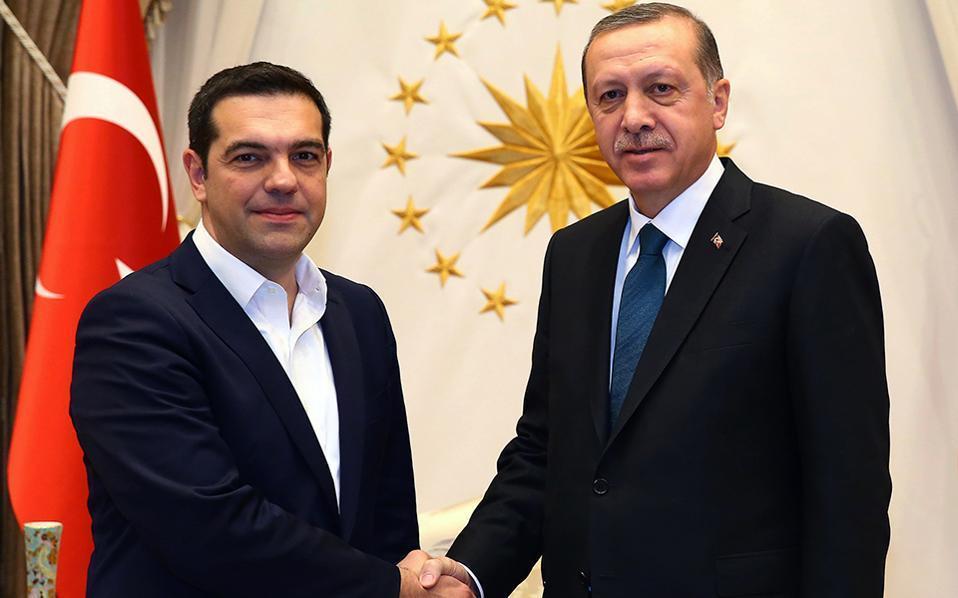Erdogan to Become First Turkish President to Visit Greece Since 1952
In a groundbreaking move, President Recep Tayyip Erdogan will visit Greece and will become the first top Turkish leader to do so since 1952.
A senior official confirmed the presidential visit, which will be the first in 65 years. Turkey and Greece have oscillating and turbulent relations strained by a frozen conflict in the Aegean Sea and deep mutual mistrust fed by clashing interests over Cyprus.
Mr. Erdogan visited Greece twice, in 2004 and 2010, but as prime minister. The last Turkish president who went to Greece was Celal Bayar in 1952.
Since President Bayar’s visit, the relations had then locked into a downward spiral over Cyprus conflict and strained NATO’s southeastern flank with an intra-alliance feuding.
Both countries came to the brink of direct military confrontation when Turkey intervened in 1974 to stop a Greek Cypriot junta who launched a coup in a bid to unite the island with Greece.
During Turkey’s military interference, Hellenic Force in Cyprus (ELYDK) fought against the advancing Turkish troops along with the Greek Cypriot army.
The Cyprus crisis led to the downfall of the military junta in Greece after a political upheaval in 1974.
Modern Greece gained its independence from the Ottoman Empire after a prolonged rebellion assisted and backed by Great Powers of the time in the early 1800s. Modern Turkey took shape in the ruins of decaying Ottoman Empire, which was dismembered following the World War One which sent the multiethnic empires to the dustbin of history
Turkey has led a War of Liberation against invading armies in Anatolia following the Great War and fought the occupying Greek forces in a life-and-death battle that gave the birth to the new republic.
The modern Turkish-Greek relationship was largely defined by historical animosity, a clash of interests, mutual mistrust and a frozen conflict in the Aegean Sea that would stir up an inadvertent military conflict at any moment if the sides ultimately fail to resolve points of territorial disputes.
But despite such a historical backdrop, contemporary relations evolved into a more benign and friendly context.
President Erdogan’s government sought to improve ties with Greece when it came to power in 2002. The bilateral trade volume saw a remarkable increase, while the number of tourists traveling to each country increased to more than one million.
Our president will be the first Turkish president to visit Greece in 65 years,” Turkish Deputy Prime Minister Hakan Cavusoglu, according to Anadolu news agency.
“I think that this visit will have significant results,” added Mr. Cavusoglu, who was born in Greece.
Ties between Ankara and Athens have also experienced significant progress since Alexis Tsipras, who is believed to enjoy a warm personal relationship with Mr/ Erdogan, became prime minister in 2015.
Greece and Turkey both joined NATO in 1952 but the thaw between the two countries only began in earnest in 1999 after destructive earthquakes struck both nations within weeks of each other.
They also cooperated closely in the 2015 migration crisis, with Greece backing an EU deal for Turkey to stem the flow of migrants.
However, there are still many bones of contention.
Athens is unhappy over Turkey’s upkeep of Byzantine monuments in Istanbul, the former Constantinople, including the Hagia Sophia which is officially a museum but has seen an uptick in Muslim activity in the last years.
Greece has also been rattled by Erdogan’s sometimes angry tirades against the post World War I treaties that set the countries’ modern borders and meant almost all the Aegean islands are Greek territory.
Turkey, meanwhile, is unhappy that Greece has given sanctuary to suspects wanted over the 2016 failed coup, notably eight troops who escaped by helicopter on the putsch night.




Comments are closed.